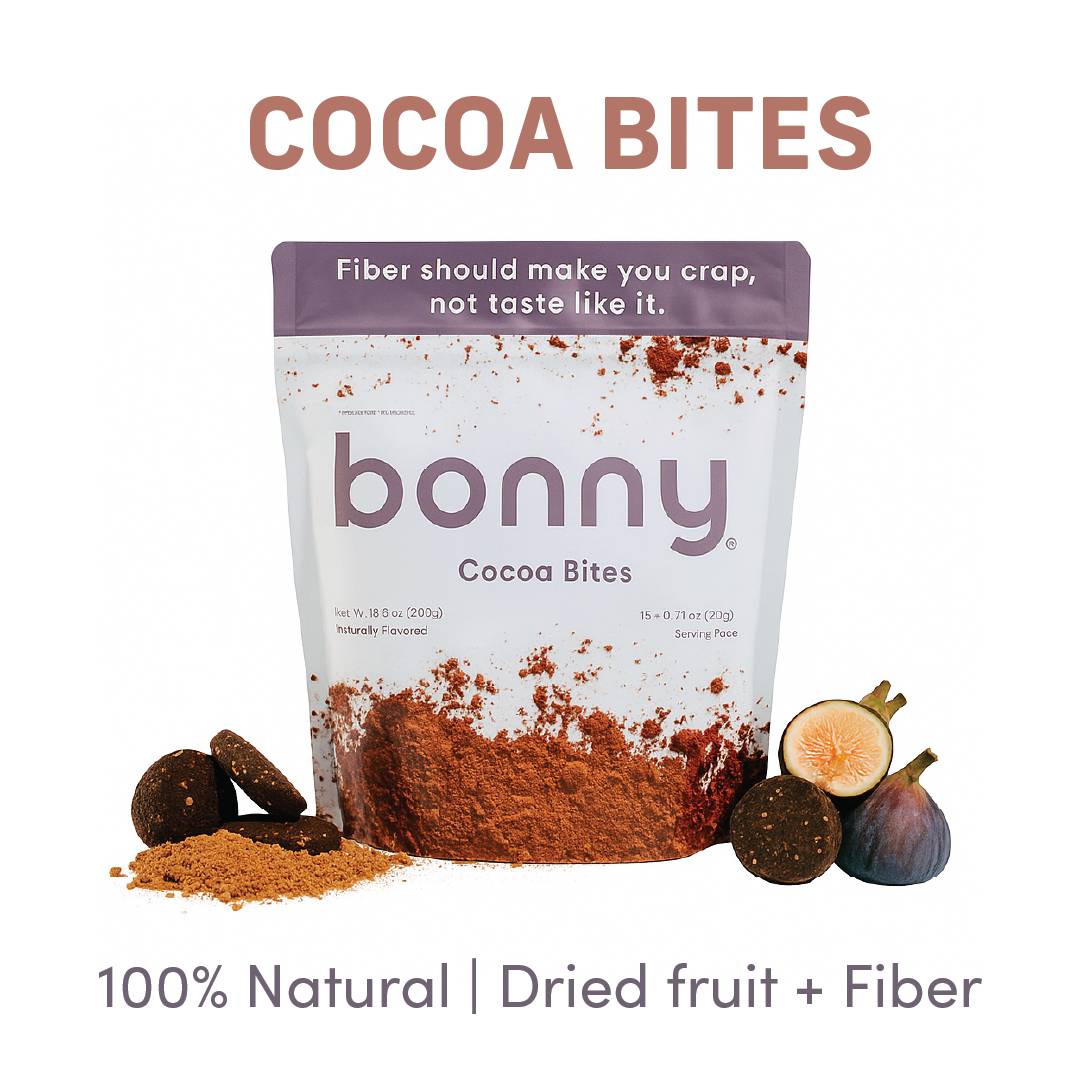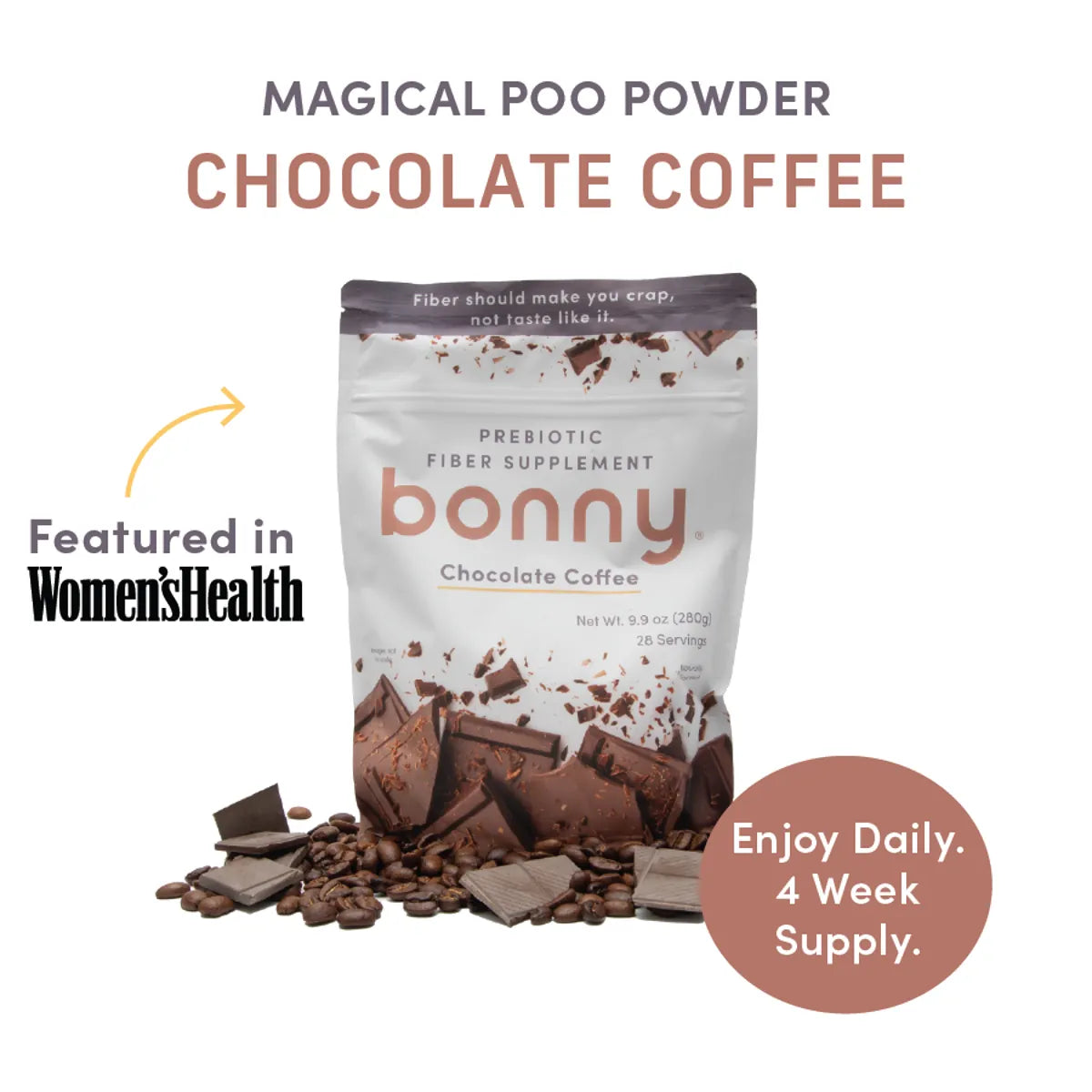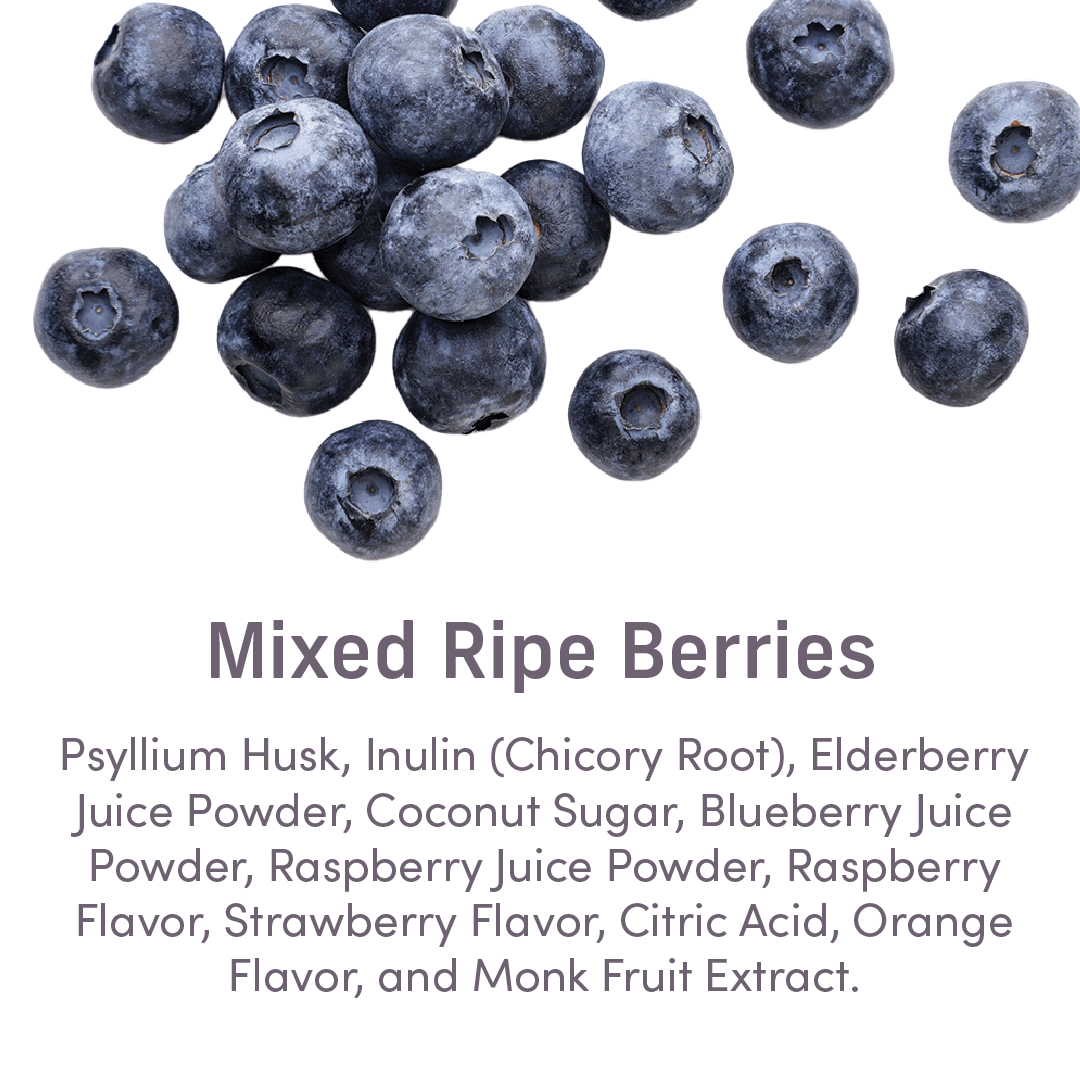Growing a person inside you is a beautiful thing, but unfortunately, it can also cause some unpleasant side effects – like constipation. There are a lot of pregnancy side effects we all hear about and see portrayed in movies, like morning sickness and swelling feet. But others, like constipation, aren’t talked about all that much. Nothing is off-limits with your fiber BFF Bonny. Let’s get into constipation during pregnancy, and more importantly, how you can fix it.
Does Pregnancy Cause Constipation?

Next Level Chef / Via media.giphy.com
Yes, constipation is a common part of pregnancy. Constipation during pregnancy is caused by the increase in progesterone hormones that relax the intestinal muscle, causing food and waste to move slowly throughout your system.
When Does Constipation Start in Pregnancy?
Every woman and every pregnancy is different, but constipation tends to start as early as the second or third month of pregnancy when the progesterone levels rise. Progesterone causes the muscles in your body to relax (so you can grow a baby!) but this relaxation also includes your intestines. Slower intestines = slower digestion. Unfortunately, constipation can also worsen as the pregnancy progresses and your uterus grows.
Constipation and Pregnancy
If you are pregnant and experiencing constipation, you’re not alone. Nearly three out of every four pregnant women will experience constipation and other bowel issues at some point during their pregnancy, according to a study published in Acta Obstetricia et Gynecologica Scandinavia.
Don’t live with being constipated for the entire nine months of your pregnancy: you have enough going on! We have some tips for how to combat constipation. (Plus, let’s be real: constipation can affect your mood, too.)
What To Do For Constipation During Pregnancy

Though normally you have a million constipation remedies readily available, when you are pregnant, there are only a few pregnancy-safe options to get your poop moving. For example, you will most likely need to stay away from any stimulant laxatives. Many laxatives and stool softeners are not safe for pregnancy, especially herbal or homemade ones. As always, talk to your doctor before taking any constipation medications or even at-home remedies!
Fight Back With Fiber
Fiber is proven to help with constipation. Eating fiber is a key part of your digestive health, especially when you are pregnant. Fiber helps make your stool bulkier and softer, so it’s easier to pass through your system. Not only does fiber help with preventing constipation, but it also gets you several other necessary vitamins and antioxidants. It is recommended that pregnant women consume between 25 and 30 grams of dietary fiber daily to stay regular and healthy.
Some good high-fiber options include fresh fruits and veggies, beans, peas, lentils, bran cereals, and other whole-grain bread. But when you simply can’t eat enough fiber, there is always Bonny to help you meet your daily quota! Bonny is a prebiotic fiber powder that gives you pleasant poops.
Drink Your Fluids
One of the most important ways to prevent constipation is to drink plenty of water and other fluids. Dehydration is one of the most common causes of constipation. Water helps you digest all that fiber you’re eating and helps keep things moving through your digestive tract.
Get Moving
Sometimes the last thing you want to do when you are in the early stages of pregnancy is exercise, but getting moving can get your bowels moving, too. So, try going for a walk (waddle?) or signing up for that prenatal yoga class to get your poop on.
Avoid Refined Foods
Refined foods like white bread, white rice, and pasta can back things up, so avoid them as much as possible.
Don’t Max Out at Mealtimes
Yes, you’re eating for two. But instead of eating big meals that can back up your digestive tract, try to break up your meals. For example, eat six smaller meals a day rather than three large ones. (Who doesn’t want to eat two breakfasts, two lunches, and two dinners anyway!?)
Consider Your Supplements
It’s ironic, but a lot of those supplements and medications that are meant to help your pregnant body, like iron supplements, calcium, and prenatal vitamins, can make you more constipated. Consider checking with your doctor about alternative options or other different doses until you’re regular again.
Don’t Wait

PBS Digital Studios / Via media.giphy.com
When you’ve gotta go - go! Whether you’re in a meeting or at the park, don’t hesitate to run to the bathroom when you feel that familiar feeling. Regularly holding it in can weaken the muscles that control your bowels and lead to *more* constipation.
How Fiber Can Help Constipation During Pregnancy
Fiber is always important, but the benefits of eating fiber actually increase during pregnancy and go beyond just relieving constipation.
Fiber Helps Regulate Your Blood Sugar
The right amount of fiber in your diet can slow the digestion of your food, which prevents blood sugar from rising too fast. This lowers the risk of developing diabetes during pregnancy (and will give you less anxiety when you go in for your glucose test!).
Fiber Reduces Your Risk for Other Dangerous Conditions During Pregnancy
Fiber also helps lower bad cholesterol from developing in your body and reduces your risk for high blood pressure, coronary artery disease, and stroke.
Try Bonny to Help with Pregnancy Constipation
Fiber should help you poop, not taste like poop. That’s why our founder created Bonny because she wanted to take a fiber supplement that tastes good.
Bonny is the perfect fiber supplement to help with your pregnancy constipation and beyond, too. If you want to stop the toilet pain and strain during your pregnancy, try Bonny!
Bonny is an all-natural, plant-based, fiber supplement for pleasant poops. It’s fruit-flavored fiber that tastes amazing. We have a custom blend of psyllium husk and inulin fibers to get things moving.
Note, each tin contains a small amount of different adaptogens, which are botanicals that help the body regulate the stressors it encounters in each tin. Consult the full ingredient list for details. As always, you may want to speak with your doctor regarding adaptogens during pregnancy.
Fabulous flavors include Apple Pie, Mixed Ripe Berries and Super Strawberry.
As always, we wish you pleasant poops.




